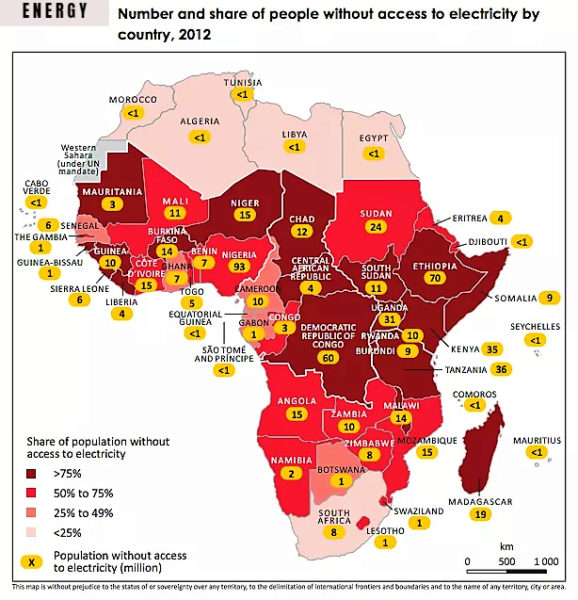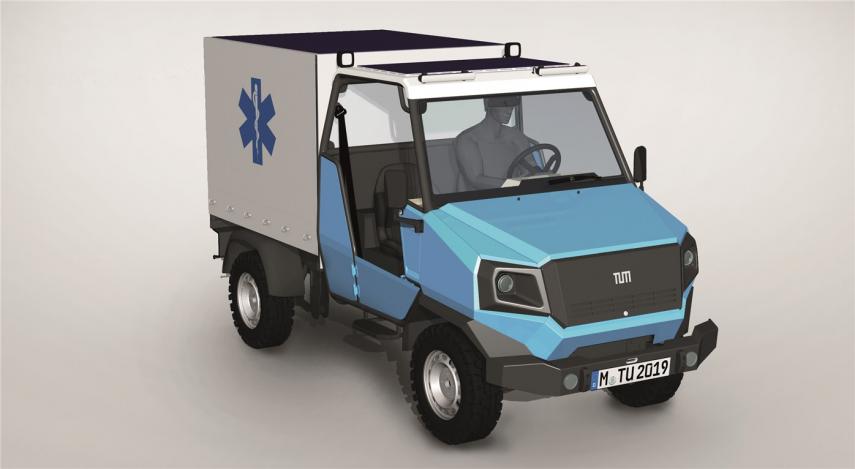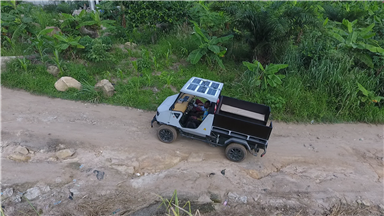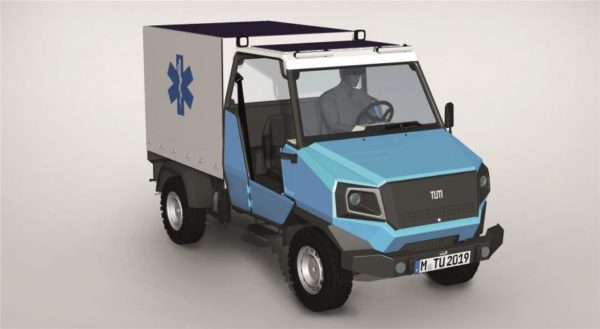Welcoming Electric Mobility in Africa
In 2017 the electric car, aCar, was presented at the IAA 2017 in Frankfurt . The model was specially designed for Africa, due to the needs of the population of the sub-Saharan countries. A concrete problem is that farmers who live far away from urban centers have difficult access to health systems, education and other indispensable services due to mobility.
African roads are mostly unpaved, so four-wheel drive vehicles are badly needed. The idea regarding aCar as an electric vehicle was formulated on the basis that it is environmentally friendly, simple to maintain and more economical. The aCar has a four-wheel drive, a battery capacity of 20 kWh for about 80 kilometers of electric autonomy and can carry passengers as well as cargo. The battery offers a variety of possible applications; it can be used as a power source, or as a motor for other tools. The car can be charged in any Schuko socket and will include a quick charge option in the future. In addition, there are solar panels on the roof that guarantee an additional distance of five to eight kilometers.
An Obvious Question: Will Electric Mobility Have a Strong Impact on African Countries?
There is an optimistic wave that electric mobility can gradually grow in Africa, but it all depends on governments and investments.

The numbers on the map are from 2012, and the 620 million in Africa made up about half of the 1.2 billion people worldwide who didn’t have electricity in their homes that year.
One challenge facing this type of mobility, especially in the sub-Saharan region, is the reliability of the energy supply and its cost. Electricity shortages are constant in 30 of the 48 sub-Saharan countries and electricity prices can be twice as high as in countries such as the United States or China. These costs are more than 5% of the GDP in Malawi, Uganda and South Africa, and 1-5% in Senegal, Kenya and Tanzania (Foster and Briceno-Garmendia, 2010).
However, Africa is increasingly opening up to the benefits of renewable energies such as solar and wind. A report by the research company BloombergNEF (BNEF), entitled “Solar energy for companies in sub-Saharan Africa” concludes that the commercial and industrial solar sector (C&I) in sub-Saharan Africa is growing not because of regulatory support from the state, as it has been the case in many developed economies, but because of economic issues. Solar energy is cheaper than electricity tariffs paid by commercial or industrial customers in 7 of the 15 sub-Saharan markets studied by BNEF. This would, therefore, bring a breath of fresh air to the Africans, due to the opening up of new energy options.
Limitations to Be Considered
Those who have a lithium battery system in which the surplus production of their solar panels is stored receive guaranteed energy consumption for household appliances and systems, and theoretically also for vehicle charging. The problem is that charging one battery (that of the car) with another battery (that of our photovoltaic installation) is not the most efficient. The alternative in these cases will be to use the conventional electrical network to recharge the vehicle, and for it, the most convenient thing is to have a good night electric rate that helps us to economize.
It is clear that any invention that contributes to the diversity of populations is always positive. However, the economic policies of each State have a direct impact on the quality of life of its citizens. I recognize the great work of aCar in the inclusion of electric mobility for everybody, but undoubtedly in countries with energy supply problems, it is tremendously difficult to achieve the great goal of efficiency. In short, I will be waiting for the day when Miss. Technology walks hand in hand with Mr. Competent State since that will be “the day” when we are all winners.








